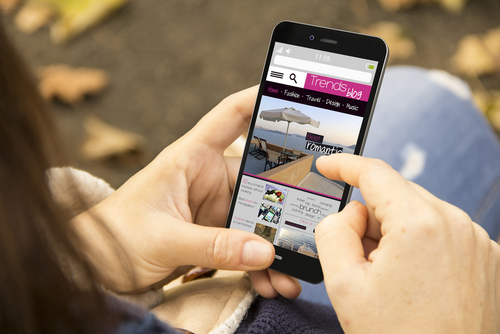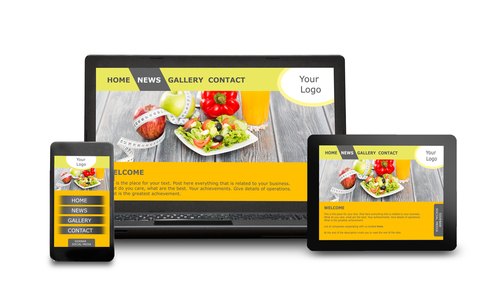
Status quo would tell you that the 21st century is a digital era. Innovations have made everyone’s lives easier and more convenient – tasks that originally required days to be accomplished can now be done within a couple of hours! And wherever you look, you’ll always see people owning one gadget and at least one social media account. If you’re a business owner, you should be able to ride this bandwagon. You should reach out to your customers in a platform convenient to them – and today, it’s through your business website. But for your website to become appealing online, you should make sure that it can provide a mobile user experience to everyone.
Nowadays, your potential customers aren’t just browsing through their desktop computers. Most of the time, they’re doing it through their smartphones and tablets. This is why your website should also be apt for your customers’ mobile experience. To help you out, here are some ways you can improve the mobile user experience when building a website:
- Your mobile site should be consistent, simple and easily navigable: You should keep in mind smartphone screens are much smaller than desktops and laptops. You should make sure information you’re posting on your mobile website is pleasant and clear. Avoid providing too much information as this can be very distracting and frustrating to someone who’s viewing everything on a small screen. To ensure that your mobile website will only gain positive results, keep in mind these important tips:

- Steer away from producing a mobile website that is too content heavy with redundant information.
- Think what your customers would want to read from your website and highlight those. If possible, put this information at the top of your website for easy access.
- Your landing pages should be clean, clear and concise. Expect that online visitors would always want to click through buttons to access more information, so make it easy for them.
- Use form fields that only require less information from your customers (no more than six fields).
- It’s best if your mobile website has a search bar, especially if your business has focused on technical niche and diverse topics.
- You should provide an easy scroll experience: Even if you’re a business owner, you still get the chance to browse other mobile websites. And you know how stressful it can be when a website isn’t easy to scroll through –don’t commit this mistake on your own website. You shouldn’t set up your entire user experience to become a “pinch and zoom” situation. You’ll only lose your customers once you do this.
Opt to use scrolling menu bars and checkboxes so you can simplify the data entry process. When you reduce the contents of your page, you can increase the size of your texts, making it more readable to your customers.
Aside from the texts, you should also consider the size of your action buttons. There should be enough space in between each of these buttons so your customers can easily access through their fingers.

- You should think about the speed of your mobile website: All of your efforts to design a website that can give your customers a mobile user experience will be useless if you’re not thinking about speed. Online users will only wait for a maximum of 15 seconds for a page to load. If your page takes longer to load, you’ll never gain any customers. There are many plugins that can help you with this one. It can help you check your mobile website’s speed and improve it when necessary.
Call Out For Help
Building a website is already a challenge, much more if you want to create a mobile experience for your potential customers. This will take so much of your time and effort. But once you’ve done it successfully, you’ll be surprised how these changes can bring in customers. Aside from the things presented in this article, you should also be open to the idea of asking help from professionals like U-Thrive Marketing to help guide you in the right direction.

Bill Sheikh
Bill is the founder of U-Thrive Marketing, Tulsa, Oklahoma's premier digital marketing and website design firm. He has helped hundreds of businesses across Oklahoma and the rest of the US put their business on the map online. He specializes in generating more customers for the businesses he works with by utilizing proven online marketing tactics such as SEO, PPC, Conversion Optimization & Social Media marketing. He also has talented experts on his team who specialize in website design & development. He has been featured in many national and local publications with content related to digital marketing.
